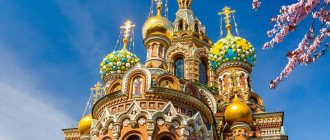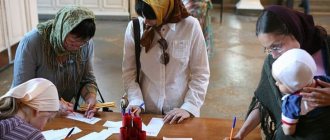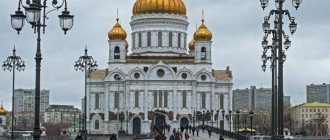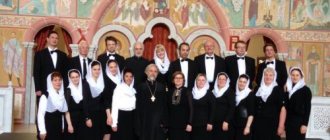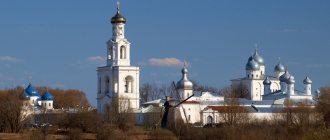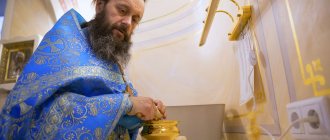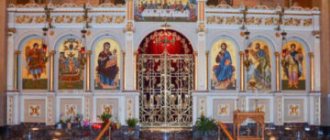Audio version of the article
- How to write notes about health and repose in Greek temples
- Altynbike, Zlata or Khrisa? What's in a name? prot. M. Obukhov
- Photo album: “Memorial Notes”
***
Church note (formerly: diptych , synodik) - a one-time memorial “On health” or “On repose”, served in the church for commemoration at a proskomedia or litany, at prayers and memorial services. Commemoration of the living and the dead is also customary daily in home prayers.
Table of contents
- What is the advantage of praying for our family and friends in church?
- Who should and can be remembered in notes
- How the Church commemorates the living and the dead at Proskomedia
- Why is it necessary to pray for the dead?
- How to properly remember the dead
- How often should memorial notes be submitted?
- A reminder for those wishing to submit a note about the living and the deceased
- Is it possible to write in notes “For health” and “For repose” of people for whom it is unknown whether they have been baptized?
- How to write in notes the names of people whose names are not in the calendar?
- What to do if a note was submitted for health for eternal remembrance, and the person died?
***
What is the advantage of praying for our family and friends in church?
Home prayer, as a rule, does not have such grace-filled power as common, conciliar prayer, that is, the prayer of the Church.
Church prayer is the prayer about which the Lord said: “Truly I also say to you that if two of you agree on earth about anything they ask, it will be done for them by My Father in heaven, for where there are two or three are gathered in my name, there am I in the midst of them” (Matthew 18:19-20).
Believers gather in the temple for joint prayer. God Himself mysteriously dwells in the temple. The temple is the house of God. In the temple, the priests offer the Most Holy Bloodless Sacrifice. Even in Old Testament times, prayers were accompanied by the sacrifice of animals to cleanse sins and appease God. In the Church of the New Testament, animal sacrifice does not exist, for “Christ died for our sins” (1 Cor. 15:3). “He is the propitiation for our sins, and not only for ours, but also for the sins of the whole world” (1 John 2:2).
He sacrificed His Most Pure Blood and Flesh for everyone and established at the Last Supper the Sacrament of Holy Communion, the offering under the guise of bloodless gifts - bread and wine - of His Most Pure Flesh and Blood for the remission of sins, which is performed in churches at the Divine Liturgy.
Church prayer has special power also because it is offered by a priest specially appointed to perform sacred rites and offer prayers and sacrifices to God for people.
“I chose you and appointed you,” says the Savior to His Apostles, “so that... whatever you ask of the Father in My name, He will give you” (John 15:16).
They transferred the rights given from the Lord to the apostles and the duties and powers assigned to them to the successors they appointed: bishops and presbyters, bequeathing to them the power, the right, and the indispensable duty, first of all... “to make prayers, petitions, supplications, thanksgivings for all people” ( 1 Timothy 2:1).
That is why the holy Apostle James says to Christians: “If any of you is sick, let him call the elders of the Church, and let them pray over him” (James 5:14).
The holy righteous John of Kronstadt recalled how, while still a young priest, an unfamiliar woman asked him to pray for the success of one of her affairs.
“I don’t know how to pray,” Father John humbly answered.
“Pray,” the woman continued to ask. – I believe that through your prayers the Lord will help me.
Father John, seeing that she had such high hopes for his prayer, became even more embarrassed, again claiming that he did not know how to pray, but the woman said:
- You, father, just pray, I ask you, as best you can, and I believe that the Lord will hear.
Father John began to remember this woman during the liturgy. After some time, the priest met her again, and she said:
“You, father, just prayed for me, and the Lord sent me, through your prayers, what I asked.”
This incident influenced the young priest so much that he understood the power of priestly prayer.
Who should and can be remembered in notes
In notes submitted for commemoration, the names of only those who have been baptized in the Orthodox Church are written.
The first note we submit is “On Health” .
The concept of “health” includes not only the health and physical condition of a person, but also his spiritual condition. And if we pray for the health of a person who has done a lot of evil, this does not mean that we are praying that he will continue to be in the same state - no, we pray to God that He will change his intentions and internal disorder, made sure that our ill-wisher or even enemy began to be in harmony with God, with the Church, with others.
This note should include all Christians to whom we wish health, salvation and prosperity.
The Word of God teaches that everyone needs to pray not only for themselves, but also for others: “pray for one another” (James 5:16). The Church is built on this common prayer for each other.
In Imperial Russia, all prayer services began with the name of the Sovereign Emperor, on whose “health” the fate of not only Russia, but also every family, every Orthodox Christian depended. Now we must write first the name of our Patriarch, and after him the diocesan bishop (metropolitan, bishop), who cares and offers prayers and sacrifices to the Lord for the flock entrusted to him. Many Christians do this, as the Holy Scripture teaches: “First of all, I ask you to make prayers, petitions, supplications, thanksgivings for all people, for kings and for all those in authority, so that we may lead a quiet and serene life in all piety and purity, for this is good and It pleases God our Savior, who wants all people to be saved and to come to the knowledge of the truth” (1 Tim. 2:1-4).
Then the name of your spiritual father is written, the priest who instructs you, takes care of the salvation of your soul, prays to the Lord for you: “Remember your teachers” (Heb. 13:7).
Then write the names of your parents, your name, the names of your family members, loved ones and relatives. Everyone should pray for the health and well-being of their family: “If anyone does not provide for his own, and especially for those of his own household, he has denied the faith and is worse than an infidel” (1 Tim. 5:8).
For your family and relatives, write down the names of your benefactors. If they have done good to you, then you should also wish and pray for good and blessings from the Lord for them, so as not to remain in debt to them: “give everyone their due... Do not remain in debt to anyone except mutual love; For he who loves another has fulfilled the law” (Rom. 13:7-8).
Finally, if you have an ill-wisher, an offender, an envious person or even an enemy, write down his name for prayerful remembrance, according to the commandment of the Lord: “love your enemies, bless those who curse you, do good to those who hate you, and pray for those who despitefully use you and persecute you” (Matt. 5:44).
Prayer for enemies, for those at war, is a great force for ending hostility and establishing peace. The Savior himself prayed for his enemies. There are many known cases when one of the warring parties wrote the name of his ill-wisher in the health note next to his name - and the hostility stopped, the former enemy became a well-wisher.
The second note we submit is “On Repose . In it we write the names of deceased relatives, acquaintances, teachers, well-wishers, everyone who is dear to us.
Just as we pray for the living, so we must pray for the dead - and not only for our closest relatives, but also for our entire family, for everyone who did us good in earthly life, helped us, taught us.
The dead, although they have departed from us, although they remain flesh in the earth, but in soul with the Lord, have not disappeared, they continue to live a spiritual life invisible to us before the eyes of God, since the Lord Himself says in the Holy Gospel: “God is not the God of the dead.” but living, for with Him all are alive” (Luke 20:38).
We believe that our deceased relatives, and we often do not know the names of many of them, pray for us, their descendants.
We who live on earth, together with those who have departed from us, constitute one Church, one body, having One Head - the Lord Jesus Christ. “If we live, we live for the Lord; Whether we die, we die for the Lord: and therefore, whether we live or die, we are always the Lord’s. For to this end Christ died, and rose again, and lived again, that he might be Lord both of the dead and of the living” (Rom. 14:8-9).
Our unity and communication with the dead is especially felt during fervent prayer for them. It produces an extremely deep effect and impression on the soul of the person praying, proving the real communication of the soul of the person praying with the souls of those for whom the prayer is offered.
Types of funeral notes
In addition to the duration of the prayer, there is also another factor that determines the rules for reading notes: their type, as a rule, at each service the requirements for pronouncing the names of the deceased/living are different.
Forms of notes on health and repose
Simple
This name was given to the most common version of the requirement; its content is often similar to many others. Simple is a variety for which no donations are made. This is one of the reasons why it is read by the priest's assistant, and not by himself. Many people mistakenly believe that such a memorial note may remain unread. In fact, this is a misconception: all texts are pronounced without exception.
Submitting simple notes with minimal or no donation is also not sinful. This method of asking for prayer for the deceased/living is considered acceptable.
Sorokoust
One of the varieties of custom-made notes in the church. It is distinguished by the need to make a donation for the needs of the temple. Moreover, such funds are not considered payment for reading the names of the deceased in the note. This is only an opportunity to assist the clergy in providing for the simplest needs, since it was said: “Those who serve the altar are fed from the altar” (41 Canons of the Apostles). In addition, a registered note has one more difference. Thus, the names that it contains are pronounced repeatedly during the service.
Sorokoust - is a prayer rule read every day.
The main condition is that the text is pronounced for at least 40 days in a row. The main principle of the service comes down to the performance of the Divine Liturgy, when they commemorate the dead or wish health to the living, meanwhile the priest takes out particles of the prosphora, pronouncing words from the text of the submitted notes (reads names about health or repose).
Sorokoust has its own characteristics and is distinguished by a high level of importance. This is due to the connection with the sacred biblical number forty. Comparisons are often made: Moses led the Jewish people for 40 days, the Savior wandered in the desert for 40 days, etc.
Sorokoust - prayerful commemoration for forty days in the Russian Orthodox Church
Guardhouse
Such a form is submitted before the beginning of Lent - the text written on it is read mainly during litia (a short prayer service, which is usually read twice daily, in the morning and in the evening). The fasting variety is intended for every day until the period of voluntary asceticism ends. Usually during the litia the names of the deceased are pronounced, but another tradition is also introduced - the mention of the living (a note for health).
A full liturgy is not encouraged during Lent. This is a solemn service, and the period of asceticism obliges one to strive for simplicity.
Notes commemorating the deceased are usually read on weekends (Saturday, Sunday).
Memorial service
A memorial service is a funeral service. At the same time, the deceased are remembered. A day earlier or immediately before the service, you must submit a registered note with the names of those who have long since died, as well as the newly deceased. The difference between this method of remembrance and reading a prayer at home lies in the participation of a person, which he shows in relation to the deceased: he remembers him when he gives a note, mentally turns to God, asks to forgive the sins of the deceased, worries for him in his soul, and is present at the funeral service. Such attention and sincere care provides more help to the incorruptible shell of the deceased.
How the Church commemorates the living and the dead at Proskomedia
How is the offering of the Sacrifice performed in the temple according to our notes?
Preparation for Her begins during the proskomedia.
Proskomedia is a part of the liturgy during which bread and wine are prepared for the Sacrament.
Translated from Greek, this word means “bringing” - the ancient Christians themselves brought bread and wine to the temple, necessary for the liturgy.
Proskomedia, symbolizing the birth of Jesus Christ, is performed in the altar secretly for the believers in the church, just as the birth of the Savior took place secretly, unknown to the world.
For proskomedia, five special prosphoras are used.
From the first prosphora, after special prayers, the priest cuts out the middle in the shape of a cube - this part of the prosphora is given the name Lamb. This “lamb” prosphora rests on a paten, a round dish on a stand, symbolizing the manger in which the Savior was born. The lamb prosphora is actually used for Communion.
From the second prosphora, the “Mother of God” prosphora, the priest takes out a portion in honor of the Mother of God. This particle is placed on the paten to the left of the Lamb.
From the third prosphora, the “nine-time” prosphora, nine particles are taken out - in honor of the saints: John the Baptist, prophets, apostles, saints, martyrs and saints, unmercenaries, Joachim and Anna, and the saint in whose name the liturgy is celebrated. These taken out particles are placed on the right side of the Lamb, three particles in a row.
After this, the clergyman proceeds to the fourth prosphora, from which they take out particles about the living - about the Patriarch, bishops, presbyters and deacons. From the fifth prosphora they take out particles about the deceased - Patriarchs, creators of churches, bishops, priests.
These removed particles are also placed on the paten - first for the living, below - for the dead.
Then the priest removes the particles from the prosphora served by the believers.
At this time, remembrances are read - notes, memorial books, which we submitted to the candle box for the proskomedia.
After reading each name indicated in the note, the clergyman takes out a piece of prosphora, saying: “Remember, Lord, (the name we wrote is indicated).”
These particles, taken out according to our notes, are also placed on the paten along with the particles taken from the liturgical prosphoras.
This is the first, invisible by those praying, commemoration of those whose names are written in the notes we submitted.
So, the particles taken out according to our notes lie on the paten, next to the particles taken from special liturgical prosphoras.
This is a great, holy place! The particles lying in this order on the paten symbolize the entire Church of Christ.
“At the proskomedia, the entire Church, heavenly and earthly, is figuratively presented gathered around the Lamb who takes away the sins of the world... What a close connection is between the Lord and His saints, between Him and those who live piously on earth and those who die in faith and piety: remember what a close connection is between us and the saints and those who died in Christ, and love everyone as members of the Lord and as your members - writes the holy righteous John of Kronstadt about the particles taken from the prosphora and placed on the paten. – How close to each other are the inhabitants of heaven and the inhabitants of earth, and the Mother of God and all the saints, and all of us, Orthodox Christians, when the divine, universal, transcendental, universal Liturgy is celebrated! My God! What a joyful, life-giving communication!”
Many believe that the particles offered for the living and the dead are a cleansing sacrifice for our sins.
It's a delusion. You can be cleansed from sin only by repentance, correction of life, mercy, and good deeds.
The particles taken out from the prosphora we serve are not consecrated into the body of the Lord; when they are removed, there is no remembrance of Christ’s suffering: during the ascension of the Holy Lamb, during the proclamation “Holy to the Holies,” these particles do not rise for the mysterious elevation to the cross with the flesh of the Savior. These particles are not given in communion with the Flesh of the Savior. Why are they brought? So that through them the believers, whose names are written in our notes, receive grace, sanctification and remission of sins from the cleansing sacrifice offered on the Throne.
A particle taken from our prosphora, reclining near the most pure Body of the Lord, being brought into the chalice, filled with Divine blood, is completely filled with sacred things and spiritual gifts and sends them down to the one whose name is exalted. After all the communicants have partaken of the Holy Mysteries, the deacon places into the chalice the particles of the saints, the living and the dead, reclining on the paten.
This is done so that the saints, in their closest union with God, rejoice in heaven, and the living and the dead, whose names are indicated in the notes, having been washed by the most pure blood of the Son of God, receive remission of sins and eternal life.
This is also evidenced by the words spoken by the priest: “Wash away, O Lord, the sins of those who were remembered here, with Your Honest Blood.”
That is why it is necessary to commemorate the living and the dead in the Church, at the liturgy - after all, it is here that the cleansing of the sins we commit every day takes place through the Blood of Christ.
The sacrifice made by our Lord Jesus Christ on Calvary and offered daily during the Liturgy on the Holy Throne is a complete and completely exhaustive payment for our debt to God - and only it, like fire, can burn away all of a person’s sins.
Sorokoust is a commemoration performed by the Church daily for forty days. Every day during this period, particles are removed from the prosphora.
“Sorokousts,” writes St. Simeon of Thessalonica, - are performed in remembrance of the Ascension of the Lord, which happened on the fortieth day after the resurrection, - and with the purpose that he (the deceased), having risen from the grave, ascended to the meeting (that is, towards - ed.). Judge, he was caught up into the clouds, and so he was always with the Lord.”
Sorokousts are ordered not only for repose, but also for health, especially for seriously ill people.
A prayer service is a special divine service in which they ask the Lord, the Mother of God, and the saints to send mercy or thank God for receiving benefits.
Public prayers are performed on temple holidays, on New Year’s, before the beginning of the youth’s teaching, during natural disasters, during invasions of foreigners, during epidemics, during periods of rainlessness, etc.
Other prayer services belong to private worship and are performed at the requests and needs of individual believers. Often during these prayers there is a small blessing of water.
The note for the prayer service begins with an indication of which saint the prayer service is being offered, whether it is for health or repose. Then the names of those for whom the prayer song will be offered are listed.
You can order commemoration of the living or deceased for a month, for six months, for a year.
Some churches and monasteries accept notes for eternal remembrance.
If you submitted a registered note, then the names written in the notes are pronounced at prayer shortly after the reading of the Gospel.
At the end of the Gospel, a special (that is, intensified) litany begins - a general cry to God, a threefold “Lord, have mercy!”
The deacon calls: “Ritz (that is, let’s say, let’s pray, speak) with all our hearts, and with all our thoughts, with all our hearts!”
In two petitions, we strenuously ask the Lord to hear our prayer and have mercy on us: “Lord, Almighty, God of our fathers, pray (that is, pray to You), hear and have mercy. “Have mercy on us, O God...”
All those in the church ask for the Patriarch, for the bishop, for the priestly brotherhood (clerical clergy) and for all “our brethren in Christ,” for the authorities and the army...
The Church prays for mercy (so that the Lord would have mercy on us), for life, peace, health, salvation, visitation (that is, so that the Lord would visit and not leave with His mercies), forgiveness, forgiveness of the sins of the servants of God to the brethren of this holy temple.
In the last petition of the special litany, the deacon strongly calls for prayer for those who bear fruit and do good in this holy and all-honorable temple, those who work (for the temple), those who sing and those who stand before them, expecting great and rich mercies from God.
Those who bear fruit and do good are believers who bring to the temple everything necessary for Divine services (oil, incense, prosphora, etc.), who sacrifice money and things for the splendor of the temple and for the maintenance of those who work in it.
On certain days, the special litany is followed by a special litany for the dead, in which we pray for all our departed fathers and brothers, asking Christ, the immortal King and our God, to forgive them all their sins, voluntary and involuntary, to rest them in the villages of the righteous and, recognizing, that there is no person who has not sinned in his life, we beg the Lord to grant our departed the Kingdom of Heaven, where all the righteous rest.
During the litanies, the deacon pronounces the names of those indicated in the registered note and invokes God’s blessing on them, and the priest reads prayers.
Then the priest says a prayer before the Throne, loudly calling out the names from the notes.
The custom of reading notes with names during special litanies dates back to ancient, apostolic times - “the deacon commemorates diptychs, that is, the memorial of the departed.” Diptychs are two tablets made of paper or parchment, folded like the tablets of Moses. On one of them the names of the living were written for reading during the sacred rite, on the other - the names of the deceased.
"To the Proskomedia"
The notes “On health” and “On repose” are read by the clergy at the altar at the proskomedia - the first part of the Divine Liturgy, during which the Holy Gifts are prepared for the Sacrament of the Eucharist. During the proskomedia for those people whose names are written in the note, the priest takes particles from the prosphora and at the end of the Liturgy lowers these particles into the Holy Chalice, which contains the Body and Blood of Christ, with the prayer: “Wash away, Lord, the sins of those who are remembered here with Your Blood Honest, through the prayers of Your saints." By performing this sacred rite, the grace of the Holy Spirit is given to the souls of people commemorated according to the notes.
At this time in the temple the reader reads the 3rd and 6th hours. Believers should understand how important the moment is happening at this time in the altar, and try to pray carefully, remembering their living and deceased relatives.
Sometimes in a church you can find separate notes for the proskomedia and a separate “mass” service. Mass is popularly called Liturgy. A customized mass is a commemoration made from notes during the Liturgy. Such notes are read at the proskomedia, at the litany and at the prayer service (or memorial service).
Why is it necessary to pray for the dead?
Our relationships with our neighbors do not end after their death. Death interrupts only visible communication with them. But in the Kingdom of Christ there is no death, and what we call death is the transition from temporary life to eternal life.
Our prayers for the departed are a continuation of our relationships with our neighbors. We, who believe that our departed did not die, also believe that the Most Merciful Lord, through our prayer, will forgive souls who died, although in sins, but with faith and hope of salvation.
The Church is a living organism, in the words of the Apostle Paul, a Body, the Head of which is the Lord Jesus Christ Himself.
Not only believers living on earth belong to the Church, but also those who died in the right faith.
There must be a living, organic unity between the living and the deceased, because in a living organism all members are connected with each other, each performs something for the life of the whole organism.
Our duty is to care for those members of the Church who have ended their earthly existence, and through our prayer to alleviate the condition of the deceased.
Before their death, many did not have time to receive the sacrament of repentance and holy communion and died an unexpected or violent death. The deceased can no longer repent themselves or give alms. Only the offering of the Bloodless Sacrifice for them, the prayers of the Church, alms and charity for them can ease their fate after death.
The commemoration of the dead is, first of all, prayer for them - at home, and especially in church, combined with the offering of a bloodless sacrifice at the Divine Liturgy.
“When all the people and the sacred face stand with hands raised, and when a terrible sacrifice is presented, then how can we not pray to God, asking for the dead?” – writes Saint John Chrysostom.
But in addition to praying for the departed, we must show mercy in every possible way and do good deeds, because “alms delivers from death and can cleanse all sin” (Tob. 12:9).
Saint John Chrysostom advises: “Almost dead through alms and acts of kindness: for alms serves to deliver one from eternal torment.”
St. Athanasia, having said that “if the souls of the departed are sinners, then for the good deeds of the living in their memory they receive remission of sins from God,” adds: “if they are righteous, then charity for them serves to save the benefactors themselves.”
Therefore, it is necessary that prayer and Bloodless Sacrifice be offered for our departed as often as possible.
Offering a Bloodless Sacrifice for the dead eases their fate, even if they were already in hell, for the Bloodless Gifts brought to the sacrifice are transformed into the Flesh and Blood of Christ, so that He Himself is sacrificed for the sake of our salvation.
How to properly remember the dead
The custom of remembering the dead is already found in the Old Testament Church.
The Apostolic Constitutions mention the commemoration of the dead with particular clarity. In them we find both prayers for the departed during the celebration of the Eucharist, and an indication of the days on which it is especially necessary to remember the departed: the third, ninth, fortieth, annual.
Thus, the commemoration of the departed is an apostolic institution, it is observed throughout the Church, and the liturgy for the departed, the offering of the Bloodless Sacrifice for their salvation, is the most powerful and effective means of asking the departed for the mercy of God.
Church commemoration is performed only for those who were baptized in the Orthodox faith.
Memorial services for suicides, as well as for those who have not been baptized in the Orthodox faith, are not performed . Moreover, these persons cannot be commemorated at the liturgy. The Holy Church offers unceasing prayers for our departed fathers and brothers at every divine service and especially at the liturgy.
But besides this, the Holy Church at certain times creates a special commemoration of all fathers and brothers in faith who have passed away from time immemorial, who have been worthy of Christian death, as well as those who, having been caught by sudden death, were not guided into the afterlife by the prayers of the Church. The memorial services performed at this time are called ecumenical.
On Meat Saturday, before Cheese Week, on the eve of the remembrance of the Last Judgment, we pray to the Lord that He will show His mercy to all the departed on the day when the Last Judgment comes.
On this Saturday, the Orthodox Church prays for all those who have died in the Orthodox faith, whenever and wherever they lived on earth, whoever they were in terms of their social origin and position in earthly life.
Prayers are offered for people “from Adam to this day who have fallen asleep in piety and right faith.”
Three Saturdays of Great Lent - Saturdays of the second, third, fourth weeks of Great Lent - were established because during the presanctified liturgy there is no such commemoration as is performed at any other time of the year. In order not to deprive the dead of the saving intercession of the Church, these parental Saturdays were established. During Great Lent, the Church intercedes for the departed, so that the Lord forgives their sins and resurrects them into eternal life.
On Radonitsa - Tuesday of the second week of Easter - the joy of the Resurrection of the Lord is shared with the departed, in the hope of the resurrection of our departed. The Savior Himself descended into hell to preach victory over death and brought from there the souls of the Old Testament righteous. Because of this great spiritual joy, the day of this commemoration is called “Rainbow”, or “Radonitsa”.
Trinity Parental Saturday - on this day the Holy Church calls us to commemorate the dead, so that the saving grace of the Holy Spirit cleanses the sins of the souls of all our forefathers, fathers and brothers who have departed from time immemorial and, interceding for the gathering of all into the Kingdom of Christ, praying for the redemption of the living, for the return captivity of their souls, asks “to rest the souls of those who departed first in the place of cooling, as if they are not dead, they will praise You, Lord, those who exist below in hell dare to bring you confessions: but we, the living, bless You and pray, and we bring cleansing prayers and sacrifices to You for the souls ours."
Dimitrievskaya Parental Saturday - on this day, commemoration is made of all Orthodox slain soldiers. It was established by the holy noble prince Demetrius Donskoy at the inspiration and blessing of St. Sergius of Radonezh in 1380, when he won a glorious, famous victory over the Tatars on the Kulikovo Field. The commemoration takes place on the Saturday before Demetrius Day (October 26, old style). Subsequently, on this Saturday, Orthodox Christians began to commemorate not only the soldiers who laid down their lives on the battlefield for their faith and fatherland, but along with them, for all Orthodox Christians.
The commemoration of deceased soldiers is performed by the Orthodox Church on April 26 (May 9, new style), as well as on August 29, the day of the Beheading of John the Baptist .
It is imperative to remember the deceased on the day of his death, birth and name day.
Days of remembrance must be spent decorously, reverently, in prayer, doing good to the poor and loved ones, in thinking about our death and future life.
The rules for submitting notes “On repose” are the same as notes “On health”.
“On the litanies, the newly deceased or significant builders of the monastery are commemorated more, and then no more than one or two names. But proskomedia is the most important commemoration, for the parts taken out for the departed are immersed in the blood of Christ and sins are cleansed by this great sacrifice; and when there is a memory of one of your relatives, you can submit a note and remember it at the litany,” wrote the Monk Macarius of Optina in one of his letters.
Conditions for funeral services for suicides
When a person kills himself, this does not always mean abandonment of the Almighty. In some cases, suicide occurs in a state of impaired consciousness (with mental disorders), as well as due to inattention (poisoning with mushrooms, vapors of toxic substances). Then the possibility of reading a prayer for such people is considered. Basic conditions under which it is permissible to pronounce the names of the deceased:
- a document confirming that the suicide was not committed deliberately;
- permission of a high-ranking clergyman.
A funeral service is impossible if the church considers a person a suicide
Mental disorder
In order not to have to find out how to submit a note for the repose of a suicide with mental illness, you need to confirm that such a person does not have a conscious intention to kill himself. The only correct way is to take a certificate about his mental state. This can only be done if the deceased was registered in a specialized institution.
Bishop's blessing
The clergy say that the Lord conveys his blessing through intermediaries. These are the priests. First, the grace of God descends on the ministers of the church. Then they pass it on to the believers. The bishop's blessing works in exactly the same way. Such a person has the authority to make difficult decisions, as in the case of the funeral service for a suicide who died under special circumstances.
How often should memorial notes be submitted?
The prayer of the Church and the Most Holy Sacrifice attract the grace of the Lord to us, cleansing and saving us.
We always, both during life and after death, need God's mercy towards us.
Therefore, it is necessary to be worthy of the prayers of the Church and the offering of the sacrifice of the Holy Gifts for us or our loved ones, living and deceased, as often as possible, and necessarily on those days that have special meaning: on birthdays, baptism days, name days of both one’s own and members of your family.
Honoring the memory of the saint whose name we bear, we thereby call on our patron to pray and intercede before God, because, as the Holy Scripture says, the intense prayer of the righteous can accomplish much (James 5:16).
It is imperative to submit a note of remembrance on your child’s birthdays and baptisms.
Mothers must carefully monitor this, because caring for the child is their sacred duty.
Whether sin attracts us to itself, whether some passion takes possession of us, whether the devil tempts us, whether despair or inconsolable sorrow befalls us, whether trouble, need, illness have visited us - in such cases, the prayer of the Church with the offering of the Bloodless Sacrifice serves as the surest means of deliverance, strengthening and consolation.
A reminder for those wishing to submit a note about the living and the deceased
- Notes must be submitted before the start of the liturgy. It is best to submit notes of remembrance in the evening or early in the morning, before the start of the service.
- When writing down the names of the living and the dead, remember them in the process of writing with a sincere desire for their good, from the bottom of your heart, trying to remember the one whose name you are writing in - this is already a prayer.
- The note must contain no more than ten names. If you want to remember many of your family and friends, send a few notes.
- Names must be written in the genitive case (answer the question “who?”). The names of bishops and priests (priests) are indicated first, and their rank is indicated - for example, “about the health” of Bishop Tikhon, Abbot Tikhon, Priest Yaroslav, then write your name, your family and friends. The same applies to notes “about the repose” - for example, Metropolitan John, Archpriest Michael, Alexandra, John, Anthony, Elijah, etc.
- All names must be given in church spelling (for example, Iulia, not Yulia) and in full (for example, Alexander, Nikolai, but not Sasha, Kolya),
- The notes do not indicate surnames, patronymics, ranks and titles, or degrees of relationship.
- A child under 7 years old can be indicated in a note as an infant - baby John.
- If you want, in health notes you can mention “sick”, “warrior”, “travelling”, “prisoner” before the name. They don’t write in notes – “suffering”, “embarrassed”, “needy”, “lost”.
- In the notes “On Repose” the deceased is referred to as “newly deceased” within 40 days after death. It is allowed in notes “On repose” to write before the name “killed”, “warrior”, “of ever-memorable” (day of death, name day of the deceased).
What types of notes are there (regular, that is, one-day notes)?
- Zzdravnymi (about health) . That is, about those living today. It is not necessary to enter only the names of currently ill people. Just write relatives whom you wish never to get sick or who have strong fortitude and faith. If there is not enough space on the note for everyone, write down the names of the sick, children, elderly parents or grandparents first. You can also enter yourself .
- Memorial (repose, remembrance, commemoration) . All the deceased are included here. But suicides cannot be included (the exception is a bishop’s blessing for their funeral service, which is given by the bishop, or a certificate stating that the person had a mental illness and was treated by a psychiatrist during his lifetime). And also you cannot write those who are anathematized (true, there are probably no such people in your family, there are very few such people in the world, and most of them are historical figures who lived a very long time ago).
How to write in notes the names of people whose names are not in the calendar?
The tradition is to baptize with a name “from the church calendar,” i.e. according to the calendar, this is only a good Russian tradition, which does not exclude the commemoration of those Christians whose names do not correspond to it.
Journal of the 165th meeting of the Holy Synod of December 26, 2019:
WE HAD A JUDGMENT on the development
Reference:
Topic: “Naming a newborn; the question of the possibility of receiving Baptism while preserving the national name" was included in the agenda of the commission of the Inter-Council Presence on the organization of the church mission (later merged with another commission as part of the commission on church education and diakonia) by a decision of the Presidium of the Inter-Council Presence of January 28, 2015.
The Commission on Church Education and Diacony, chaired by His Grace Metropolitan Pavel of Minsk and Zaslavsky, has been working on this topic since the end of 2022 and submitted its developments to the secretariat of the Inter-Council Presence by mid-2022.
Having studied the problems of the issue, the commission came to the conclusion that the tradition of naming a name according to the calendar, which has developed in the Russian Orthodox Church, does not always take into account the diversity of practices and traditions that have developed in other Local Orthodox Churches, including due to the fact that the monthly calendar of the Russian Orthodox Church does not contain the names of all saints glorified by the Local Orthodox Churches.
In addition, it was noted that, according to biblical tradition, naming a newborn baby was the prerogative of the parents. This, in particular, is evidenced by the naming of the name of the prophet John the Baptist by his father, the priest Zechariah (Luke 1:63), as well as by St. Simeon of Thessaloniki in the essay “On the Sacraments and Sacraments of the Church”: “the priest seals him with the sign of the cross on his forehead, lips and chest and with sacred prayer gives him the name chosen by the parents who participate in the baptismal rite.”
The commission also noted that there are no obstacles to accepting a name in the sacrament of Baptism in a national sound other than the usual one (for example: John - John; Joanna - Jeanne), as well as to participating in the sacraments with this name, in cases where a person bore a name with this sound before baptism or when he was baptized with a name with this sound. These other national sounds of names found in Orthodox monthly books should be distinguished from newly invented names, which fundamentally have no connection with the culture of Orthodox peoples.
Based on the developments of the commission on church education and diakonia, the secretariat of the Inter-Council Presence proposed a draft decision of the Holy Synod.
DECIDED:
1. Bearing in mind that the Holy Scripture relates the naming of a newborn baby to the rights of parents, and taking into account, at the same time, the traditions of the Orthodox Church, to draw the attention of the clergy to the possibility of unhindered - at the discretion of the parents - naming infants (and their subsequent baptism) with the names of saints, revered in any of the Local Orthodox Churches.
2. Emphasize the inadmissibility of any restrictions in liturgical commemoration and admission to church sacraments of believers bearing national names traditional for other Local Orthodox Churches (or names in other national sounds).
3. When baptizing or joining the Orthodox Church of an adult person bearing a name that has no analogue in the month books of the Local Orthodox Churches and is not another national sounding name from the Orthodox month book, such a person should be allowed to independently choose a baptismal name from the Orthodox month book, and it is desirable that it was close in sound to the civilian name.

